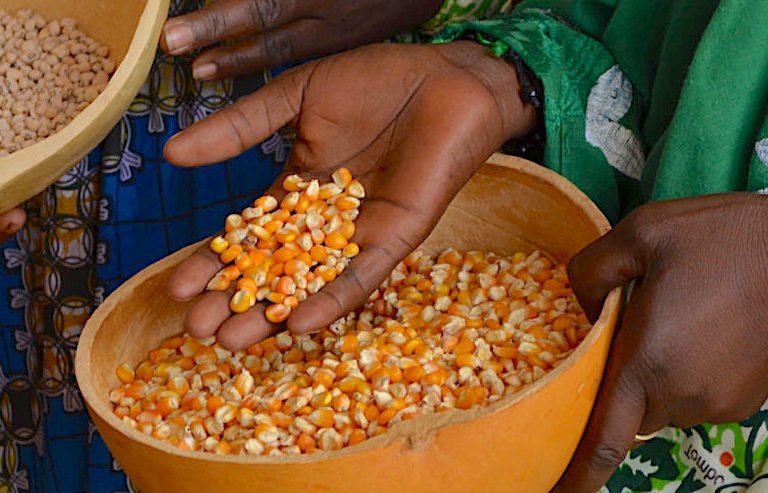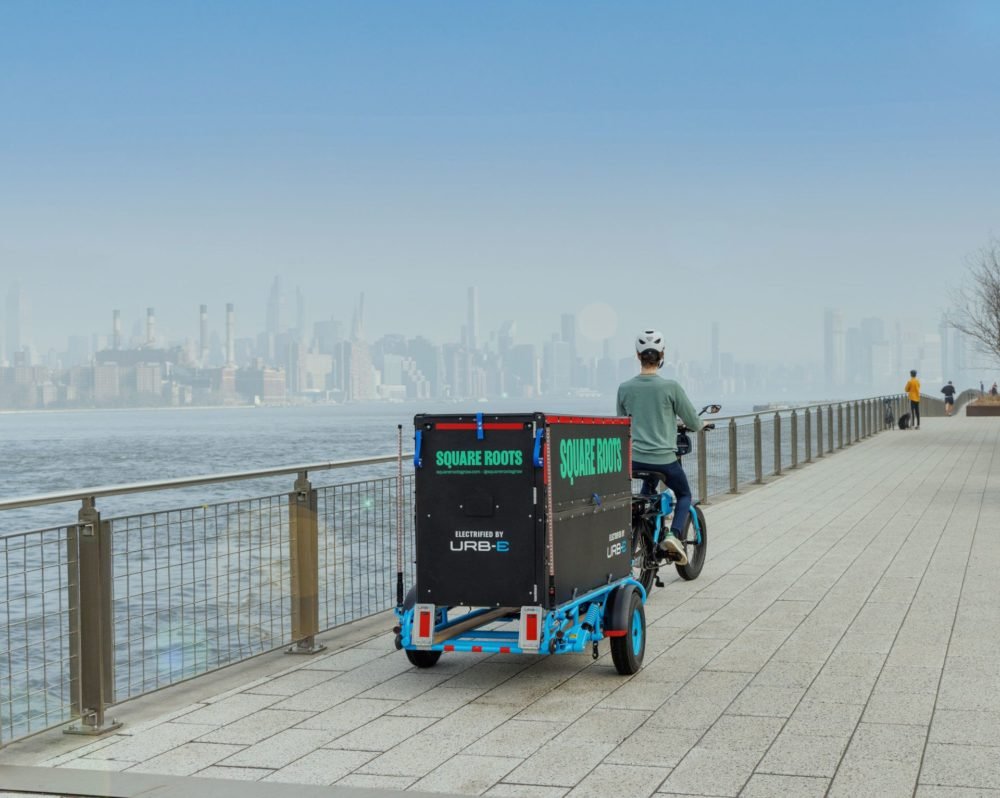- Indonesia has reported the birth of a Sumatran rhinoceros in a captive-breeding program targeted to save the critically endangered species from extinction.
- The new calf is the first child of captive rhino Rosa at the Way Kambas Sumatran Rhino Sanctuary, and Andatu, a male who was himself born at the sanctuary in 2012.
- This new captive birth of a Sumatran rhino has rekindled hopes among experts and officials for more newborns in the future.
Indonesia has reported the birth of a new Sumatran rhino calf in a captive-breeding program aimed at saving the critically endangered species from extinction.
The female rhino was born March 24 at the Sumatran Rhino Sanctuary in Way Kambas National Park in Sumatra’s Lampung province, according to a statement from Indonesia’s environment ministry. The calf is the offspring of Andatu, a male born at the sanctuary in 2012, and Rosa, a female captured from the wild in 2005. The ministry has yet to announce the name of the newborn.
The newborn calf is the third Sumatran rhino (Dicerorhinus sumatrensis) born at the Way Kambas sanctuary, and the sixth born since intensive efforts to breed the species began in the 1980s.
“The birth of this Sumatran rhino is such exciting news amidst the efforts by Indonesian government and partners to increase the population of the Sumatran rhinos,” Wiratno, the director-general of conservation at the ministry, said in a press release published March 28.
Indonesia is the last refuge for the Sumatran rhino. Eight captive individuals, including the newborn, live in Way Kambas National Park, and a lone female is kept at the Kelian sanctuary in Indonesian Borneo. The wild population is estimated to be no more than 80 individuals living in small, fragmented habitats in Sumatra and Borneo.
Rhino experts around the world decided in 2017 that the captive breeding of Sumatran rhinos, from both Sumatra and Borneo, was the only viable option to save the species, which is now found only in Indonesia after the death of Malaysia’s last captive rhino in 2019. The species once ranged across South and Southeast Asia, from the Himalayas in Bhutan and India, to southern China and down the Malay Peninsula. But it has been devastated by a series of factors, from poaching to habitat loss and, more recently, insufficient births.
The initiative launched in 2017 mirrors a similar effort in the 1980s to capture Sumatran rhinos for breeding. That program, however, collapsed a decade later after more than half of the animals died without any calves being born. But a string of successful captive births in both the United States and Indonesia, and a growing consensus that the species will go extinct without intervention, have laid the groundwork for the latest captive-breeding effort.

The mother of the newborn calf, Rosa, was captured in 2005 from the forests of Sumatra’s Bukit Barisan Selatan National Park and brought to the sanctuary for the captive-breeding initiative.
The calf’s sire, Andatu, was the first rhino born and bred in captivity in Asia since 1889, when a Sumatran rhino gave birth at India’s Calcutta Zoo. Andatu was born to two captive rhinos: a female named Ratu, and a male named Andalas, who in turn was born in captivity at Cincinnati Zoo in the United States.
The sanctuary is also home to Delilah, a female rhino born in captivity in 2016 to Ratu and Andalas — meaning that Andalas is the father or grandfather of all the calves born at the Way Kambas Sanctuary. Harapan, the facility’s other male rhino, is Andalas’s brother.
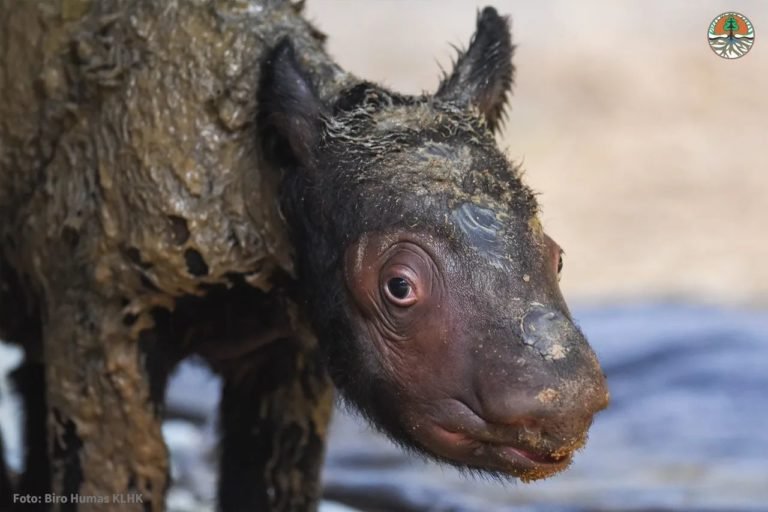
A low rate of natural breeding among isolated female rhinos is often cited by experts as the cause of reproductive woes. Prior to this new birth, Rosa miscarried eight pregnancies between 2017 and 2020.
“With the birth of Rosa’s rhino calf at the Way Kambas Sumatran Rhino Sanctuary, we hope this puts a new hope for us to continue hearing great news of more Sumatran rhino newborns in the future,” Wiratno said.
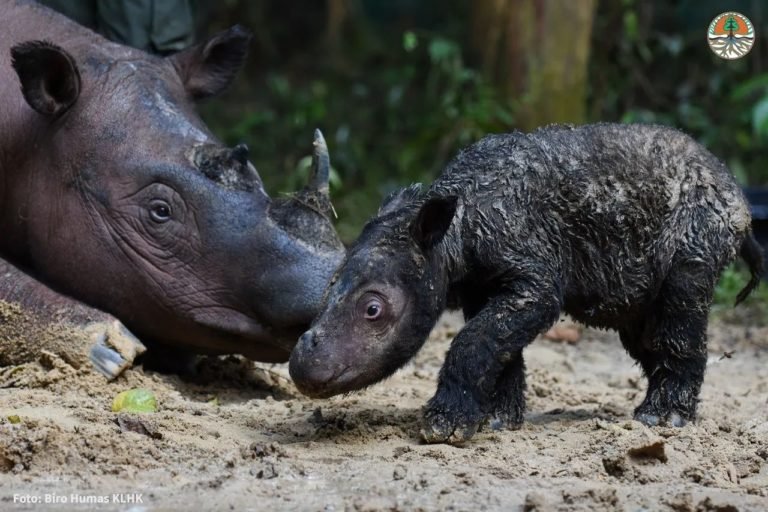
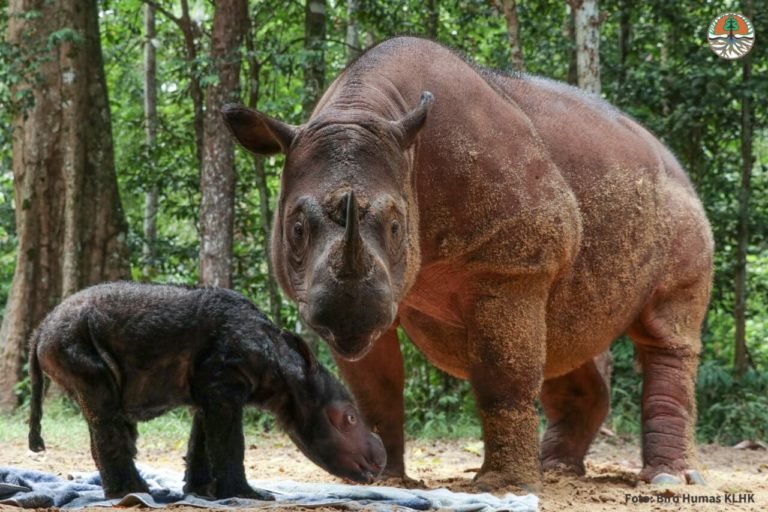
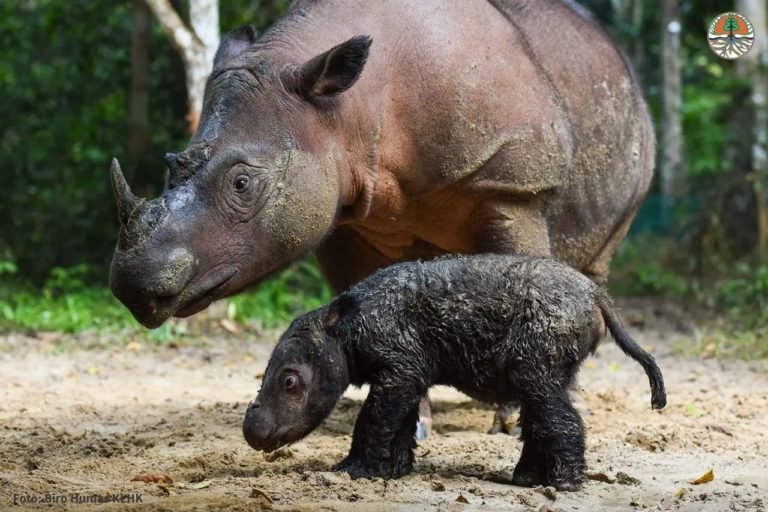
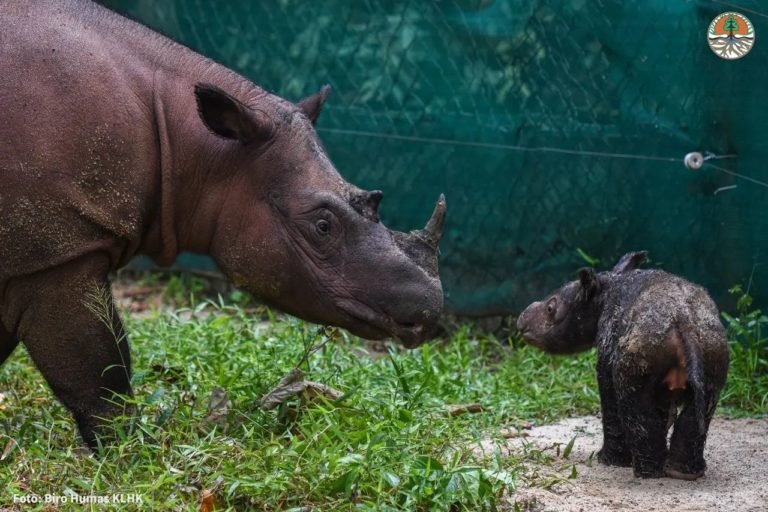
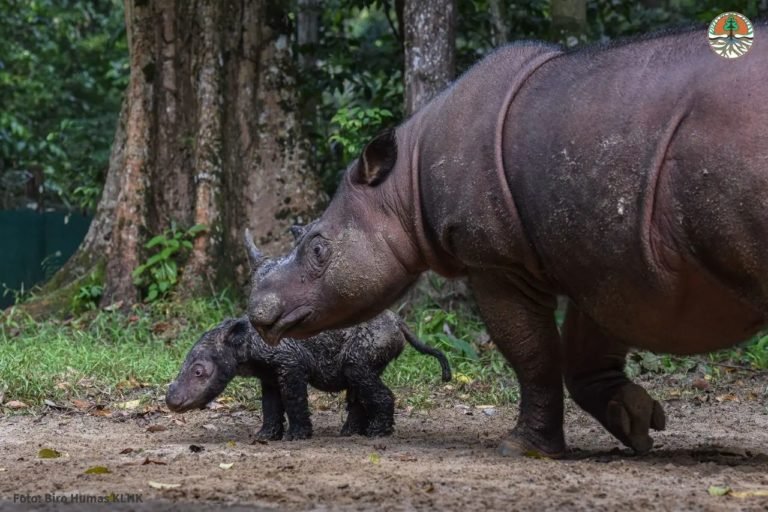
FEEDBACK: Use this form to send a message to the author of this post. If you want to post a public comment, you can do that at the bottom of the page.






